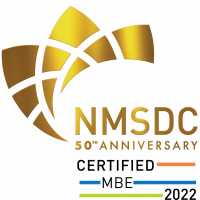Developing your communication skills is one of the single most important things you can do to set and keep your career on the right course. Whether you’re interviewing, networking, or presenting at a meeting, or developing your team, the ability to communicate effectively is paramount.
3 Types of Communication
1. Verbal
Your use of language sets the stage for you to build trust and a connection with your audience. We each have choice words we use in our everyday vernacular, however, these sets of words may not be the right fit for every environment. Just “being yourself” isn’t terribly good advice when you need to present to a large company group. A good presenter knows that they owe it to the audience, not themselves, to use language that will build a connection and trust early on. Some situations may lend themselves to stories, company jargon, and tangents, while others situations are best suited for simple, straightforward, and strategic language.
2. Non Verbal
Your body language, attire, and the atmosphere you set can all contribute to the message you are looking to portray to your audience. How you hold yourself and your facial expressions can play a role in how you are perceived and your overall message’s effectiveness.
Dressing the part. You’ve heard dress for success. Perhaps you’ve also heard, “dress for the job you want.” There is some truth to these sayings. There is a subtle message being conveyed when you “dress the part”.
3. Paraverbal
Of course, your verbal communication is huge. That’s typically categorized as what you say. Paraverbal communication is usually described as how you say it! From tone, to pitch, to strategic pauses. How you say something will be what pulls people in or bores them with an academic drone. Here are a few para-verbal items to pay attention to and develop:
Pitch
How high or low your voice goes, or is, can impact how people receive your message.
Speed, sometimes called Cadence
How fast or how slow you talk can be either engaging or extremely distracting. Speaking more slowly almost always denotes confidence and connection, while speed talking is often a sign that you are extremely nervous. In either case, your audience deserves a message conveyed at the right speed (for them). There is a powerful quote by an old philosopher, Michel de Montaigne. “Speech belongs half to the speaker, half to the listener.”
Tone
Changing your tone can be a powerful way to grab the attention of your audience without changing your words. Tone can suggest sarcasm, excitement, disbelief, and more. Utilize your tone to spotlight the points you want your audience to REALLY remember.
How To Improve and Develop Your Communication Skills For Work
1. Focus on Clarity.
Simplifying your message to what is necessary will help you focus on what needs to be said. This is always better for your audience as well.
2. ABP (Always be Prepared)
“Winging it” almost always fails. Even the most accomplished speakers regularly keep files of notes for quick reference.
3. Practice:
Turn on a Zoom meeting (without an audience) and practice what you are going to say. This way, you can see your facial expressions (non-verbal) and get used to the “look” you want to portray.
4) (Really) Listen to Your Audience
Pick up on their own non-verbal, verbal and para-verbal communication. Listening to your audience will guide you in 1:1 conversations, team meetings, board rooms, and keynote speeches.
The Importance of Developing Your Career Soft-Skills
As you develop your career from entry-level to highly-experienced, the ability to communicate effectively is one of the most important skills you can improve. The changes you make at the beginning will be different from the ones you make later on, but that is how skills are developed, from basic to expert level. Your communication skills can be the difference between a good and a bad interview. A meeting with your manager will go so much better when you each can communicate well. A promotion could be one good conversation away. This is but one of many skills you should examine during the length of your career, but this is a good place to start. John Maxwell, states that “the greatest myth about communication is that it actually happened.”
Looking for the Next Step In your Career?
At The Panther Group, we are dedicated to connecting the right people with the right opportunities. Whether you are looking for a long-term opportunity or a contract-to-hire assignment, we’ve got you covered. Our teams can connect you with opportunities in call centers, engineering, accounting, finance, life sciences, manufacturing and legal industries. If you’re looking for the next step as a professional, we encourage you to explore our career portal and apply today.
What makes The Panther Group the ideal career partner? We focus on what you want most from your career! Choose the flexibility of contract work, make smarter choices with contract-to-hire, or further your career in direct-hire roles.
It costs you nothing to find a job through The Panther Group! We elevate careers in the following industries and professions: Professional, Accounting & Finance, Engineering, Life Sciences, Information Technology, and Federal
To connect and build your career explore jobs here – or call 855-899-JOBS (5627)




